AGED CARE SCANDAL: High school sweetheart had ‘days to live’
A DARLING Downs nursing home is at the centre of a scandal surrounding the care of at least four of its residents.
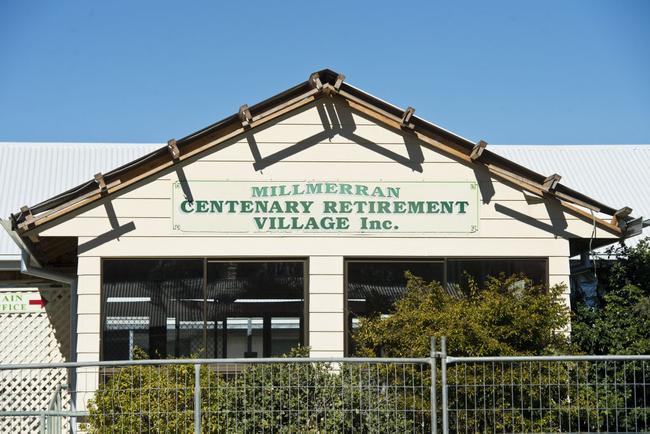
News
Don't miss out on the headlines from News. Followed categories will be added to My News.
A DARLING Downs nursing home is at the centre of a scandal surrounding the care of at least four of its residents.
A nine-month long investigation by The Chronicle can reveal multiple cases involving the Millmerran Centenary Retirement Village, also known as Yallambee Aged Care, have been probed by health authorities.
This is part two of a four-part series.
Names have been changed at the request of the family.
PART 1: GRANDMOTHER'S DEATH UNDER INVESTIGATION
MENTALLY exhausted from fighting her own cancer battle and caring for her dementia-sufferer husband Steve*, Susan* placed her high school sweetheart into the care of Yallambee Aged Care on October 13, 2017.
While he had dementia, diabetes, and epilepsy, Steve was, according to his family, a relatively healthy man for the age of 64.
After three months in Yallambee, his doctors told his family he had days to live.
At first, Susan said Steve complained about being hungry.
"He was very upset about being in there," Susan said.
"Because he reckons he wasn't getting enough food - and we used to find food in his pockets - jam, sugar, crackers, cheese. We'd say, what are you going to do with the jam? And he goes - I eat it. And I would say, why would you do that? And he'd say: I'm starving."
As time went by, Susan noticed Steve's weight was "falling off him".
He entered Yallambee in October 2017 weighing 106kgs, and left in January this year weighing 90kg, Susan said.
DOWNPLAYED
When Susan asked staff how her husband's health was, she said they downplayed the seriousness of the situation, suggesting the man was overstating the problem.
"I did get a phone call late one night to say he's got a coat on and pretending he's sick again. That same night he ended up in Millmerran Hospital," she said.
From Christmas, Steve had recurrent admissions to the Millmerran Hospital. Susan said on January 10, an allied health care worker went and saw her husband.
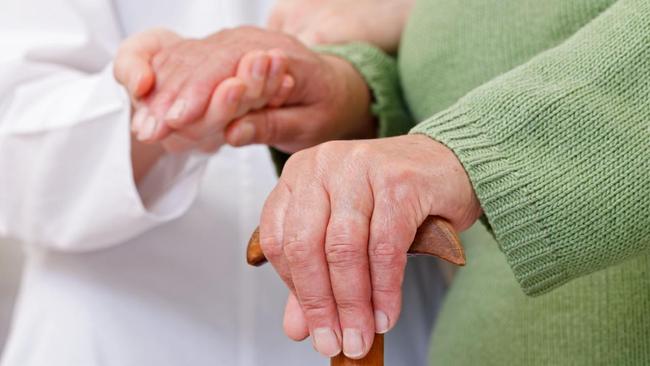
The worker rang Susan, she said, telling her that she had asked for a blanket for Steve "because he was shivering". The worker told Susan she was informed the facility "had no spare blankets".
By the time the worker rang Susan to tell her how her husband was, he had been taken to Millmerran Hospital, she said.
"My daughter actually rang too and had a talk to them about (her dad) being so sick… and they reckoned his observations were fine, although he ended up in hospital the next day."
IN HOSPITAL
Steve's health became so poor, he was eventually transferred to Toowoomba Hospital on Thursday, January 11.
On the Friday, Susan was called into a meeting with two doctors and a nurse and told her husband had days to live.
"He went septic. His organs shut down and we were told he had days. That was Friday morning, and they asked me not to resuscitate him, because his organs were so badly damaged. They said he'd have no quality of life," she said.
"So then Friday afternoon, all the family got called in, to tell them the same thing - that he had days to live and for me not to resuscitate him, to stick by me when I made the decision.
"It's not nice when you get told that someone you've been with since you were 16, and I'm 59, that he had days to live. And your grandson is begging you to resuscitate Poppy, you know, bawling his eyes out, because he was outside the door, listening, and he comes running in and begging us not to let Poppy go."
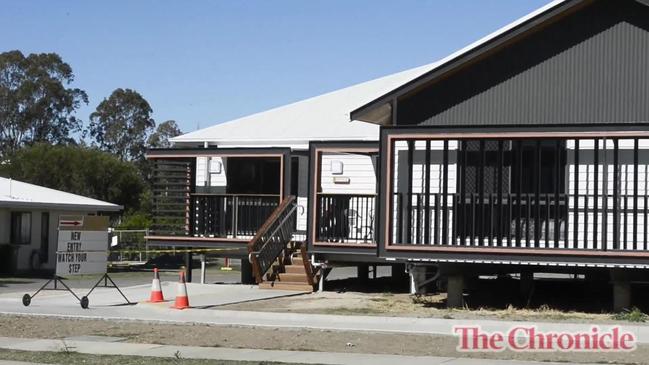
A REPRIEVE
But that was not the end of Susan and Steve's story.
On the Friday night, a surgeon at the hospital made the decision to treat Steve with a broad spectrum antibiotic. After a few days, Steve slowly began to recover.
According to Steve's medical records, he was admitted to Toowoomba Hospital suffering Klebsiella sepsis, right lower lobe pneumonia, cholecystitis, acute renal impairment and constipation.
The records also show he had suffered a prolonged seizure, and had aspirated. But Susan only found out when she got a copy of his hospital file.
The illness irreparably damaged his gall bladder, and five months into his recovery, he still can't walk properly, Susan said.
He was released from Toowoomba Hospital on January 18 and spent a month recuperating in Millmerran Hospital before moving to another nursing home.
To this day, Steve remains a very ill man.
To top it all off, Susan said Yallambee had never been able to explain how he became so sick.
"They never once rang when they found out that he was septic, and not once have they rung to give me an explanation why he went septic, why he had a bacteria in his blood and why he ended up with pneumonia.
"And they won't. They've got no explanation for why he was so sick.
"He was very healthy when he went in there except for his dementia and his diabetes, which he's had for years.
"To what he was when he came out of that nursing home into the hospital - when I walked in there I didn't even know who he was, he was that skinny and yellow and his eyes, the whites of his eyes were grey.
"And you know what, I apologised to my husband for putting him in such a place. And everyone said it's not your fault, you didn't know. You put him in there to be cared for.
"I just wanted them to answer how he got so ill, and I haven't got that answer."
RESIDENT WELLBEING 'A PRIORITY'
The Chronicle contacted the board of the Millmerran Centenary Retirement Village with details of the families' stories, and concerns.
The board issued a statement saying they took "all matters that relate to the quality of care we provide extremely seriously".
"Millmerran Centenary Retirement Village is a community owned not-for-profit aged care facility which places the wellbeing and safety of our residents as our highest priority," the statement said.
"The board which oversees the administration of the Millmerran Centenary Retirement Village comprises local community members who volunteer their time for no payment.
"Our mission is to promote and maintain a community where older people and people suffering from dementia can live with confidence of their self-worth."
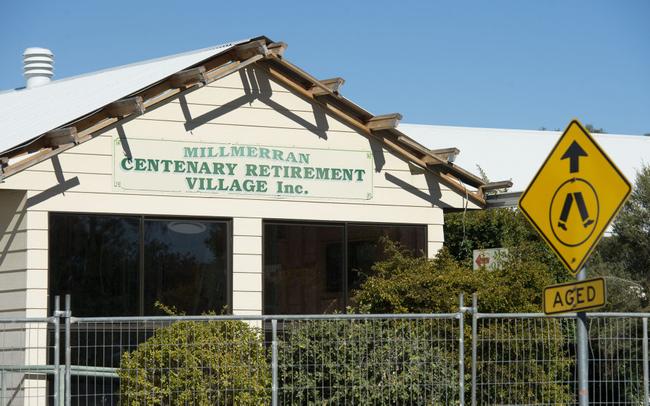
The board said it would not comment on specific matters relating to residents or former residents due to "privacy requirements", unless The Chronicle was able to provide written authorisation from the residents, or their legal representatives.
Susan authorised the facility to respond to The Chronicle's questions about the care Steve received while at Yallambee.
In a statement through their lawyer, Yallambee disputed the accuracy of Susan's account.
"Our client has provided a substantial body of contemporaneous medical material to the ACCC addressing, and refuting, Susan's complaints," the statement said.
Yallambee also disputed whether Susan had authority to allow a public discussion of Steve's affairs - arguing that "despite his various ailments" the dementia-sufferer had the capacity to make his own decisions. Speaking generally about the aged care industry, Yallambee said that "it is important to understand residents are typically entering aged care at a later stage in life than has previously been the case, which means they have more complex care needs".
"According to the Federal Government's aged care data, 92 per cent of residents now have high care needs (in at least one care area).
"Unfortunately, elderly residents now have more chronic conditions and age-related diseases that also make them more vulnerable to other illnesses (e.g. UTIs).
"The resident's emotional state when entering aged care can also have a direct effect on their physical health."
ACCC INVESTIGATION
THE Aged Care Complaints Commissioner found Yallambee Aged Care "failed to adequately document" Steve's clinical notes "or escalate his condition to a doctor when he was unwell between January 5 and 8, 2018".
In a report finalised on July 25, a delegate of the ACCC said Steve's care records showed he was transferred to hospital early on January 4, and returned to the service at 9am the next day "where he was appropriately assessed and monitored by a registered nurse".
Over the next three days, the report said Steve was again unwell at times.
"While the information supports that the service was regularly monitoring his condition and providing appropriate treatment of his symptoms, it did not escalate his condition to a doctor for review as is reasonable to expect," the report said.
"For example on 5 and 6 January 2018, Steve's oxygen saturation was at times low, and was accompanied by a very high temperature, sweating and low blood glucose levels.
"There is no information to indicate the service contacted a doctor."
The ACCC found that when Steve's condition rapidly deteriorated over January 9 and 10, Yallambee acted appropriately in transferring him to hospital and notifying his doctor.
"In addition to the above concerns regarding escalation, a review of (Steve's) clinical notes reflects that on multiple occasions a nurse made late entries into the system, limiting the ability to ensure his continuity of care and robust clinical assessment," the report said.
"As a result of the complaint the service has implemented a range of quality improvements including a review of policies and procedures, provision of training to staff, and system enhancements.
"I am satisfied these actions address the service's failure to provide clinical care of a required standard as identified through this complaint."
Yallambee's lawyer said in a statement: "The complaints raised by in respect of the care received by (Steve) have been resolved to the mutual satisfaction of our client and the ACCC".
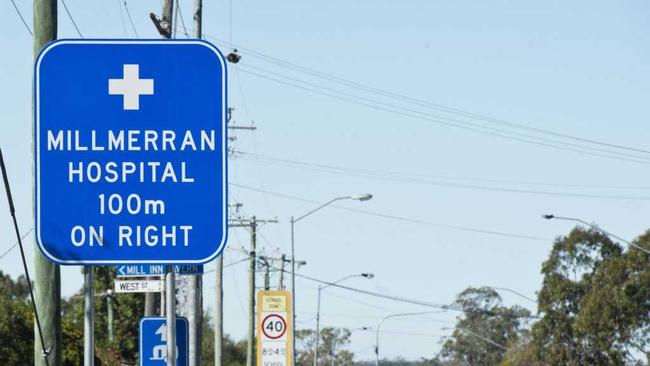
ACTION TAKEN BY YALLAMBEE
The ACCC report said the complaint had highlighted areas for in the service's practices, "particularly in relation to recordkeeping practices, and escalation when a resident is notably unwell.
"To improve clinical governance and support of registered nurses who are principally graduate nurses with limited experience, the provider is actively recruiting to engage a deputy clinical manager to be on the floor overseeing care delivery," the report said.
"In addition, a number of administrative tasks previously undertaken by the clinical care manager are now being undertaken by the business manager to allow more time for clinical functions."
Other revisions to policies and procedures Yallambee Aged Care has made in the wake of the complaint about Steve's care include:
- The engagement of a new GP to service the home. ("At present the new general practitioner is undertaking comprehensive assessments on care recipients and visits weekly".)
- All registered nurses have been instructed to notify the GP of any deviation from normal observations taken on a resident.
- The clinical care manager will undertake daily progress note reviews, and complete a full visual round of all residents to ensure that any deviation from normal has been flowed up in a timely manner.
- Engaged with the Toowoomba Hospital Acute Geriatric Evaluation Service (AGES) which includes clear engagement points for potential admissions to hospital. This occurs by the service now engaging an advanced trainee in geriatric medicine or nurse navigator at the Toowoomba Hospital, who then assesses for engagement with the AGES team in the emergency department.
- Engaged with the Health and Hospital Service in respect to supports that can be provided through partners in care model.
- "In addition to the above, the GP will provide targeted one-to-one education sessions for all graduate registered nurses at the service. Carers will also be given informal education during the service's monthly meetings and scheduled 'toolbox' sessions."
PART 3: 'WHY DIDN'T THEY CALL AN AMBULANCE'
PART 4: DOCTOR'S 18 YEARS OF COVERAGE ENDS
Originally published as AGED CARE SCANDAL: High school sweetheart had ‘days to live’


